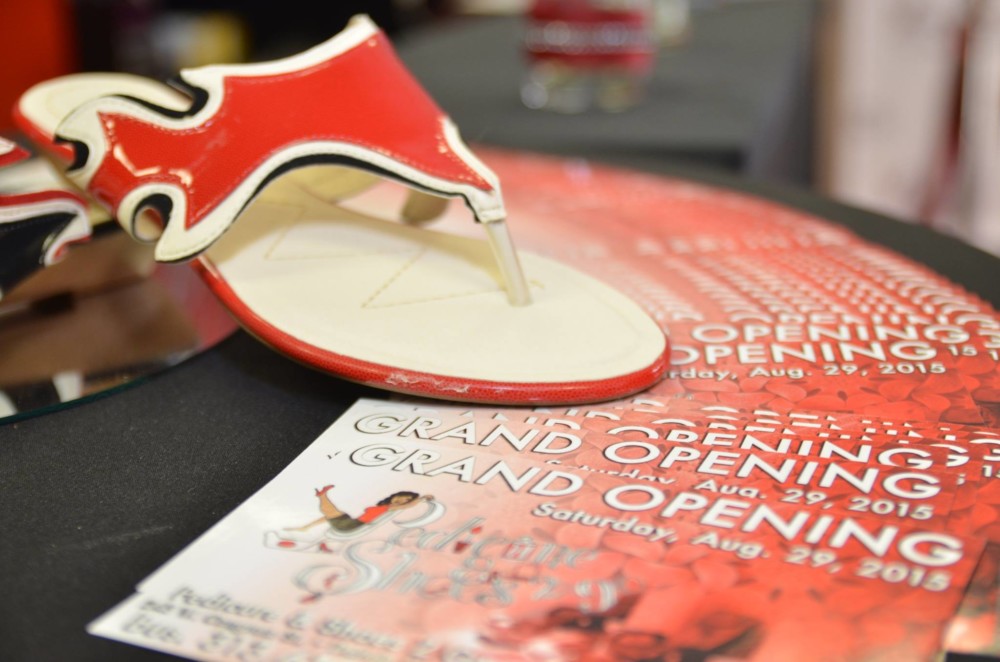By John Gallagher
Detroit Free Press
WWR Article Summary (tl;dr) Several programs are helping Detroit entrepreneurs develop their businesses. However, launching a business takes time and as many entrepreneurs are realizing receiving a check does not equal overnight success.
Detroit Free Press
Without her Motor City Match grant, Detroit entrepreneur Ayanna Williams-Jones wouldn’t be in business. But even with her grant, it’s challenging.
Williams-Jones owns the Pedicure & Shoes 2 Go boutique at 243 W. Congress. It’s a unique, little downtown shop that blends a women’s shoe store with manicures and pedicures. She opened late last year with the help of a $50,000 grant from the city’s Motor City Match program, an innovative city effort that since 2015 boosts start-up businesses using federal grant funds.
Motor City Match is one of several such entrepreneurial assistance programs in Detroit. Others funded in various ways include NEIdeas, Hatch Detroit and Accelerate Michigan. There’s also a variety of training and incubation centers and programs that offer networking, co-op space, advice and general hand-holding for entrepreneurs.
As Detroit and Michigan try to evolve their fading 20th-Century economic model into a more nimble entrepreneurial one, programs like Motor City Match ease the way for business owners. But easier never means easy, as Williams-Jones quickly found when she opened her shop.
Working capital remains the biggest problem. There’s never enough. Williams-Jones, along with almost all start-up owners, found that building out a retail space costs more than they anticipated. And often there’s not enough left over for marketing, so they struggle to get their word out.
“Day-to-day operations kind of eats away, and you’re hoping to make those numbers that you projected, but those numbers don’t come right away,” Williams-Jones said.
Motor City Match’s first-year results spotlight how tough it is to start a business. In four rounds of funding in the first year of the program, the city has announced awards of $2 million to 65 start-up entrepreneurs. But so far only about seven of those start-up businesses have actually opened their doors.
The remainder are in various stages of construction, raising additional capital, and other preparatory steps.
Some are like Jeff Adams of Artesian Farms, an indoor agriculture site in northwest Detroit. The farms was named a winner of a $55,000 grant in the first round of Motor City Match awards in 2015, but various complications have held up Adams actually getting the city cash.
Among other issues, Adams had to raise more than $500,000 from investors to show the city he had all the capital his business plan called for. With that investment money now in hand, he expects to get his Motor City Match money soon.
That will help him expand Artesian Farms’ output dramatically. Adams already sells his produce in Whole Foods, Papa Joe’s and Busch’s, but expects to scale up significantly once his Motor City Match grant allows him to expand operations.
“We’re generating pretty good revenue. We’re not quite at break-even yet but we’re getting close,” he said.
Williams-Jones had been running a small business online selling shoes and handbags and other goods for a few years before she decided to expand to brick-and-mortar location.
Besides her Motor City Match grant, Williams-Jones also got a $55,000 loan from the Detroit Development Fund, a lender that backs economic development in the city. Combined, the roughly $100,000 she raised helped her buy inventory, build out her retail space, and pay a couple of months’ rent.
But that didn’t leave any for marketing, so word-of-mouth spread slowly.
“We get a lot of people from Google and Yelp and it’s like, ‘Oh, we didn’t even know you were here,’ ” she said. “I would say marketing would be a big help in getting the awareness out about the new companies, and holding our hand during the first six months to a year.”
Detroit and Michigan didn’t need to hand-hold entrepreneurs so much for most of the past century. With giant corporations undergirding the region’s economy and spreading the benefits widely, there was little incentive to tinker with a successful economy model.
But then the nation saw its manufacturing base shrink and industrial cities like Detroit lose their way. So civic and business leaders have worked toward a new 21st Century model.
Entrepreneurs play a key role in that new model. That’s particularly true in Detroit, where the need for economic reinvention remains so great.
Programs like Motor City Match help. But patience is required. We won’t reinvent our economy overnight.














































































































































































































































































































































































